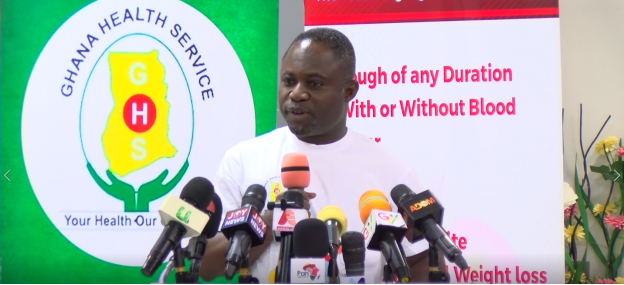Ghana’s Renewed Commitment to Eradicating Tuberculosis: A Summary of World TB Day 2025
Ghana joined the international observance of World TB Day 2025, themed "Yes! We Can End TB: Commit, Invest, Deliver," reaffirming its dedication to eliminating tuberculosis. The event, hosted at the Ministry of Health, convened stakeholders, healthcare professionals, and the public, emphasizing a collaborative approach to tackling the disease. While the event aimed to highlight progress and inspire action, it also exposed gaps in service delivery, with some attendees, like Kwaku, a yogurt seller experiencing a persistent cough, arriving with the expectation of free screenings and treatment, only to be disappointed by the lack of on-site medical provisions. This underscored the need for translating commitments into tangible services accessible to the public.
The Minister of Health, Kwabena Mintah Akandoh, reiterated the government’s prioritization of TB eradication. He outlined ongoing strategies, including expanding rapid molecular testing capabilities and establishing additional treatment facilities. The Minister stressed the importance of partnerships in intensifying efforts, reducing stigma, and fostering community involvement. Despite the Noguchi Memorial Institute for Medical Research reporting an alarming 20,599 TB cases in 2024, the Minister reassured the public that TB is curable and reaffirmed Ghana’s commitment to achieving a TB-free nation by 2030. This positive message, coupled with concrete actions, aimed to inspire hope and encourage public participation in the fight against TB.
Experts in the field lauded the progress made in TB treatment. Professor Dorothy Yeboah-Manu, Director of the Noguchi Memorial Institute, commended healthcare professionals and researchers for their contributions. She emphasized the efficacy of available treatments and expressed confidence in the ability to overcome the disease. Dr. Yaw Adusi-Poku, Project Manager of the National TB Control Programme, highlighted the availability and nationwide distribution of new TB drugs, reinforcing the message of free and accessible treatment through 24-hour service centers. These pronouncements aimed to dispel misconceptions and encourage individuals to seek timely medical attention.
Despite the positive strides, funding challenges pose a significant hurdle. With the cessation of USAID funding, Dr. Frank Lule, WHO Country Representative, stressed the urgency of a dedicated and fully funded budget to sustain TB control initiatives. He emphasized the importance of increased domestic investment to alleviate the burden on affected communities and ensure the availability of essential medical resources. The WHO’s commitment to resource mobilization, healthcare system strengthening, and stakeholder collaboration was reiterated, underscoring the importance of global partnerships in the fight against TB.
Dr. Badu Sarkodie, Director of Public Health at the Ghana Health Service (GHS), commended the development of the TB Prevention Therapy (TPT) by the National TB Control Programme as a proactive measure to curb disease transmission. However, he revealed a funding gap of $13 million required for nationwide implementation, highlighting the need for resource mobilization to translate innovative strategies into effective public health interventions. He also drew attention to the detrimental effects of air pollution, asthma, smoking, and pneumonia on lung health, urging Ghanaians to undergo voluntary TB testing, thereby promoting early detection and timely intervention.
World TB Day 2025 in Ghana served as a platform to reaffirm the nation’s commitment to ending tuberculosis. The event highlighted progress in treatment advancements, accessibility to medication, and the importance of community engagement. However, it also exposed challenges related to service delivery gaps and funding limitations. The call for increased domestic investment and sustained global partnerships emphasized the collaborative nature of the fight against TB. Looking forward, a comprehensive approach encompassing research, prevention, treatment, and public awareness will be crucial in achieving Ghana’s ambitious goal of a TB-free future. The government’s commitment, coupled with the expertise of healthcare professionals and the active participation of communities, offers hope in realizing this vision.














